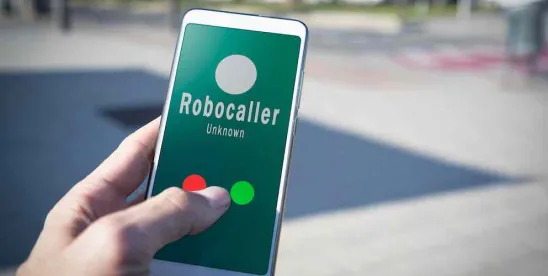Last year grumpy Czar reported on Washington’s wonky new Bill.
Well, just yesterday the Senate passed yet another bill — Washington HB 1051 concerning robocalling and telephone scams.
Here are the key provisions of the Revised Code of Washington you need to know:
Third Party Liability: The new bill makes folks that assist in the transmission of unwanted “commercial solicitation” subject to the Chapter 19.86 Consumer Protection Act. So just like the TCPA, Washington consumers can hold third parties liable for a knowing violation of the law.
“(c)(i) “Assist in the transmission” means actions taken to 7provide substantial assistance or support, which enables any person 8to formulate, originate, initiate, or transmit a commercial 9solicitation when the person providing the assistance knows or 10consciously avoids knowing that the initiator of the commercial 11solicitation is engaged, or intends to engage, in any practice that 12violates chapter 19.86 RCW, the consumer protection act.”
But it specifically exempts the following third party activities:
-
“Activities of an entity relating to the design, manufacture, 16or distribution of any technology, product, or component that has a 17commercially significant use other than to violate or circumvent this 18section;
-
Activities of a telecommunications provider or other entity that are limited to providing access to the internet for purposes 21excluding initiation of a telephone communication;
-
Activities of a terminating provider relating to the transmission of a telephone communication. “Terminating provider” means a telecommunications provider that provides voice services to an end user customer.”
The bill notes “[t]he legislature further finds that the most effective way to prevent illegal robocalling is to ensure that those calls never originate or enter the telephone network. Therefore, it is further the intent of the legislature to extend liability to those persons who provide substantial assistance or support in the origination and transmission of robocalls that violate RCW 80.36.400.”
Protections for Washington Residents: The law covers all “commercial solicitations” intended to received by customers within the state of Washington.
Tracks the Federal DNC: The new WA law prohibits a person from initiating, or causing the initiation of, a telephone solicitation to a telephone number on the federal do not call registry or that violates federal law which prohibits misleading or inaccurate caller identification information.
Increases Repeated Violations to $1,000: The new law raises the damages for violation of Chapter 19.86 RCW from $100 to $1,000 per violation.
Private Right of Action and Penalties of $1,000: The new law adds a person injured by a “commercial solicitation” by an automatic dialing and announcing device is considered a per se violation of the Consumer Protection Act, and a person injured by such violations may receive remedies under the Consumer Protection Act. A person may bring civil action and recover actual damages or $1,000 per violation, whichever is greater. Previously, there was only a $1,000 damage provision for DNC violations.
DNC Requests: The new law clarifies that the called party who does not want to be called again by a caller to request their telephone numbers be removed from the solicitor’s telephone list. Previously, the caller was required to DNC any telephone number “associated with that party within.”
Affirmative Defense for “Telecommunications Providers:” The new law provides an affirmative defense to a telecommunications provider if it both acted in compliance with 47 U.S. C.F.R. Section 227, 16 CFR Part 210 and implemented a “reasonably effective plan to mitigate origination initiation or transmission of a commercial solicitation.” “Telecommunications provider” means a provider that provides voice services to an end user customer.
Definition of “Automatic Dialing and Announcing Device:” The new law expands the definition of “automatic dialing and announcing device” to mean a system which automatically dials telephone numbers and transmits a recorded or artificial voice message once a connection is made. A recorded or artificial message is transmitted even if the recorded or artificial message goes directly to a recipient’s voicemail.
Definition of “Commercial Solicitation:” The new law changes the definition of “commercial solicitation” to include “wrongfully obtaining anything of value.”
Definition of “Telephone Solicitation: The new law modifies the definition to include “wrongfully obtaining anything of value.”
Definition of “Commercial telephone solicitation:” The new law expands the definition of “Commercial telephone solicitation” to include wrongfully obtaining anything of value and references to salesperson are removed. Additionally, the exemption that a person who had less than 60 percent of their prior year’s sales made as a result of commercial telephone solicitation is removed and such person may now be considered a commercial telephone solicitor.
You can read the new bill here: Washington Bill 1051. The new law goes into effect July 4, 2023 — ninety days after adjournment of session in which bill is passed.




 />i
/>i

